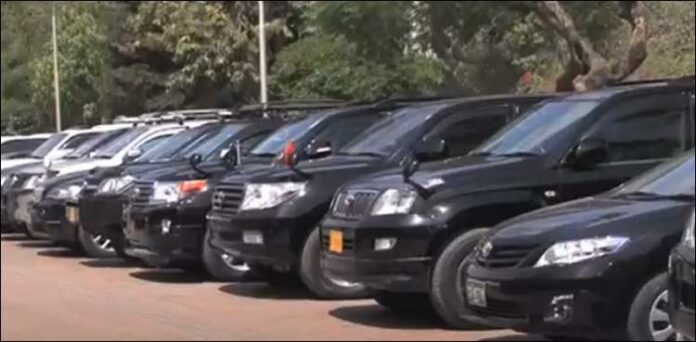According to Tribune in a recent development, it has been reported that the Federal Board of Revenue (FBR) is planning to purchase 155 luxury vehicles at a cost of over Rs1.6 billion, despite Prime Minister Shehbaz Sharif’s austerity policy. What’s more concerning is that the FBR plans to use a foreign loan, meant for upgrading its obsolete information technology system, to buy these vehicles in the name of taxpayers’ facilitation.
According to official documents, the estimated cost of the vehicles is equal to 8.6% of the funds that the FBR had secured for the upgrade of its hardware and software. It is worth noting that the FBR has not been able to upgrade its data network even after suffering one of the worst-ever data hacking incidents in its history a couple of years ago.
The FBR has submitted documents for the Investment Project Financing (IPF) component, worth Rs 19.6 billion, under the World Bank’s $400 million Pakistan Raises Revenue project. A closer look into these documents revealed that the FBR is planning to acquire 155 vehicles of 1,500 cc to 3,000 cc – an engine capacity that the FBR itself has described as “luxury” and subject to heavy taxation. It is worth noting that the FBR has not provided any details about the make of these vehicles in the documents.
Furthermore, of the Rs19.6 billion that the FBR has requested, a significant chunk of Rs1.63 billion, or 8.6%, will be used to buy these vehicles. However, in a recent meeting, the planning ministry opposed the purchase. Another meeting to acquire the ministry’s approval ahead of the Central Development Working Party (CDWP) meeting will take place today (Thursday).
The FBR has estimated that each vehicle will cost approximately $47,000 or Rs10.3 million, at the old exchange rate of Rs220 to a dollar. However, after the rupee’s devaluation and the recent increase in prices by car assemblers, the total cost of the purchase may exceed even Rs1.63 billion.
While Finance Minister Ishaq Dar announced a Rs 170 billion mini-budget, the FBR seems to be keen on purchasing cars and using taxpayer money for its personal benefits, which goes against the government’s austerity policy. In fact, Dar has already prevented the FBR from misusing the Point of Sale (PoS) funds for personal benefits after a story appeared in The Express Tribune.
In light of the current economic conditions in the country, the prime minister has announced plans to implement an austerity policy. However, the FBR’s plans to buy these luxury vehicles are not in line with the government’s policy. Last week, a national austerity committee recommended that the prime minister ban the purchase of all types of vehicles until June 2024.
The FBR follows the Universal Self-Assessment scheme, where the taxpayer has the freedom to declare their income. The FBR charges higher income tax rates from non-filers, but despite having their data, the FBR does not often go after them – with or without a car.
In its technical appraiser, the planning ministry has raised objections to the FBR’s move to buy these vehicles, asking the FBR about the “need” and the cost. The ministry has recommended that instead of buying these vehicles, “it would be more appropriate that tax facilitation facilities be outsourced.”
The planning ministry has also objected to the allocation of $3 million for training, workshops, and staff capacity building. An amount of Rs320.4 million has been proposed for the operational cost of project management (i.e., Rs30 million for the hiring of vehicles, Rs18 million for fuel, and Rs30 million for project contract staff).




